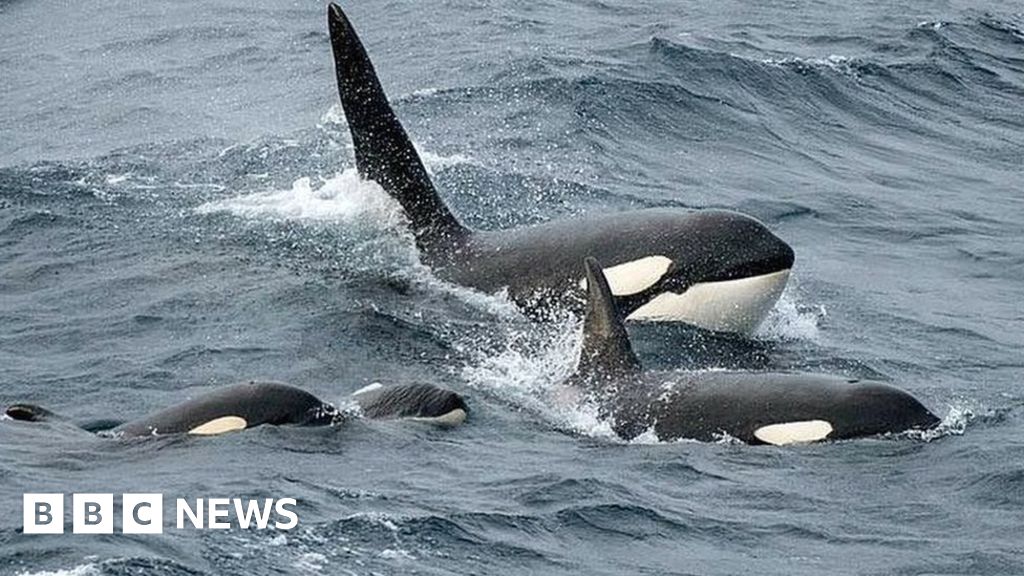
Timber companies in cameroon Image source, Ryan Leith
Image caption, An orca next to the film crew’s boat near the Shetland coast
By Katy Scott
BBC Scotland news website
Shetland wildlife enthusiasts pulled together to help Sir David Attenborough spot orcas for his latest documentary.
Dozens of local people used WhatsApp and social media groups to alert the crew when the killer whales appeared, helping them capture the elusive mammals on film.
Wild Isles on BBC One will investigate how British and Irish woodland, grassland, freshwater and ocean habitats support local wildlife.
The series took three years to film. The first episode airs on Sunday.
Shetland-based ecologist and wildlife photographer Richard Shucksmith, 49, helped the film crew get to know the local landscape.
Orcas visit the islands in spring to hunt for seals.
As a member of several wildlife spotting social media group chats for dolphins, orcas, and rare birds, Richard would rally the film crew whenever killer whales were spotted in the area by the community.
“Everybody tends to pull together,” he said. “If you want to see orcas, you need the help of everyone else.
Image source, Richard Shucksmith
Image caption, Richard Shucksmith helped the documentary crew
“There’s fishermen involved, all walks of life are involved in the WhatsApp and social media groups.
“You can’t predict when [the orcas] will turn up. But because we have a good network of people, when they’re sighted, it gets put out to everyone.
“So you stand a good chance of seeing them. If it wasn’t for the community, it would be a lot harder.”
Richard told BBC Scotland that the orca pods were well known to the wildlife enthusiasts on the islands.
He said: “A lot of the killer whales we see around Shetland, we know the pods, we’ve known them for years, we know what members there are.
“We even know all the family’s ages and when calves were born.
“So a lot of good information gets collected from a citizen science point of view too.”
Image source, bbcsilverbackfilmsscotland-thebigpicturenaturepl
Image caption, In spring, orcas visit the Shetlands to hunt for seals
He said some shouts attract up to 150 locals racing to see the impressive killer whales, occasionally blocking roads on the islands.
“Some families come and bring their kids, and you can see the orcas metres from the shoreline,” he said.
He and his colleague Nick McCaffrey were contracted to carry out drone work on the new series, alongside the film crew.
They worked with the documentary crew every day for five-week periods over three years to get the footage of the whales – including some up-close encounters.
Image source, Richard Shucksmith
Image caption, The crew spent up to 12 hours a day filming
“After filming the orcas all day on a boat, we decided to stay with them through the night,” said Richard.
“It was amazing because it got too dark to film and we just turned the engine off and sat there.
“The orcas spent about an hour and a half just drifting next to the boat.
“It was nuts, a very cool experience.”
Media caption, Watch: Key moments from David Attenborough’s new BBC series, Wild Isles
Sir David Attenborough said that wildlife in the British Isles can be just as “dramatic and spectacular” as anything elsewhere.
He has said that he regrets spending so much time working on overseas natural history programmes rather than focusing on the wildlife on his doorstep.
The new series, broadcasting on BBC One on Sunday, will examine species and habitats closer to home.
Nearly half of British wildlife species have declined since 1970.
Related Topics

